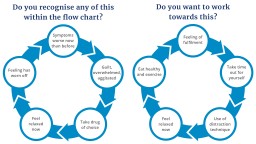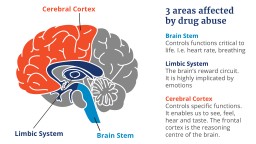Substance Abuse during COVID-19

Substance Misuse during COVID-19
by Lynn Millinson
Substance Misuse Service Nurse
During COVID-19 is your drug use increasing or are you struggling to become abstinent from a drug?
This is a stressful time for everyone but if you’ve been struggling with your mental health, you could find that your drug use has increased. Alternatively, if you’ve decided you no longer want to take drugs, you might be struggling to maintain abstinence.

How do drugs affect my mental health?
Some veterans with mental health issues may find themselves turning to using drugs to ease their symptoms. This varies from alcohol, opiates or what they feel helps them at that moment to get through that difficult time. Society has taught us it’s okay to reward ourselves after a hard day to either numb how we feel or just to make us feel better at that time with a glass of wine or a drug of choice.
However, self-medication like this may lead to escalation of the symptoms. The symptoms of depression, anxiety and/or insomnia tend to become worse after use because of the biological processes in the brain are put off balance meaning that the initial high is followed by a long time low in the recovery period.
Drugs affect three primary areas of the brain - this means the symptoms already being felt can be dampened or heightened. This can make your thought process become muddled and it can be hard to maintain clear thinking to solve simple or tricky problems. This can leave you with feelings of despair after taking the drug.

How do drugs affect my health and day to day living?
Health implications
Do you recognise any of these symptoms?
- Fatigue
- Nerve pain, muscle aches
- Increased heart rate
- Inability to sleep or sleeping too much
- Feeling of despair, thinking about suicide
- Heart problems/stroke
- Diabetes
- Liver disease
- Breathing difficulties new or worsening of breathing condition
- Weight gain or loss
- Various types of cancer
Day to day living
Are you feeling any of these symptoms?
- Feeling less motivated to wash, dress, eat, exercise, engage with others
- Feeling more irritable and anxious
- Anger outbursts, lack of empathy
- Feeling of not accomplishing anything day to day
- Lack of concentration or difficulty in concentrating
- Craving for a drug
How can I cope in the here and now?
Most important is to remember is that you’re not alone. It’s important for you to understand this and try and be kind to yourself. Looking after yourself will also benefit you with your mental and physical health.
During the lockdown your transferable skills you gained from your military service can come to the fore. Just some of the skills you have:
- Used to having significant restrictions placed on where and what you can do
- Used to having a limited availability and access to the food you want
- When there is a lack of things to do, you are used to being creative
You are used to planning your days to keep active for your physical and mental well-being and now you can transfer them to today and for the days to come during the COVID-19.
Being confined to the house will also be having an impact on your drug use or trying to maintain abstinence, here are some ideas for you, for the here and now.
Understanding the triggers/urges
You can use a mood diary - if this is something you would like to do click on the link below.
You can reflect at the end of each day or weekly with this diary and look to see if there anything that has increased your urges, such as the news, hunger, tiredness. It may also be that drinking alcohol has triggered your urge to use drugs etc.
What did you do that helped? Can you plan what helped into your day?
Download Resources
- Download the Combat Stress Mood Diary - May 2020
Distraction
- Cut the grass.
- Talk to family and friends on the phone, by WhatsApp, via Skype/Facetime etc.
- Start an online course, many are free online in various subjects.
- Put a wash on, tidy an area you’ve been meaning to for a while.
- If you’re in isolation with family or alone sit down and organise menus for the week for tea.
- Plan your week, you have lived with routine for years within your military career and routine gives stability and control day to day.
- Read a book or take up a hobby.
- Make positive plans for the day or days ahead ahead.
- Place a band on your wrist. If you feel the urge ping it 4 times, repeat as you feel necessary.
- Breathing – 4,4,4. Breathe in for 4, hold for 4, release for 4. This is a great way to help with anxiety that builds when you are trying to distract yourself through an urge.
- 5 steps to Wellbeing. Connect, keep learning, be active, give to others, be mindful. Click on the link below to learn more on practical methods to cope at home during this difficult time.
Grounding technique
Grounding is a technique used to help ground you in the present moment and helps you to control your thoughts. There are different forms of grounding and no one person finds help from the same area of grounding. DO NOT be hard on yourself if grounding does not work for you, remember to be kind to yourself and try something else.
Download Resources
- Grounding Technique Document - May 2020
The Big White Wall
This service is free for serving personnel, veterans and any family member over the age of 16 years.
Support is offered 24/7 and can be anonymous if you want.
Is there someone I can call and talk to?
If you're ready to kick the habit and move on from drugs we can help, we can offer 1 to 1 sessions of support and advice from our substance misuse nurses. Our 24/7 free Helpline remains open, so please do not hesitate to call for advice or support.
Combat Stress 24/7 Free Helpline 0800 138 1619 or email helpline@combatstress.org.uk
If you feel unwell and require medical support please contact your GP, 111 or in emergency dial 999.
